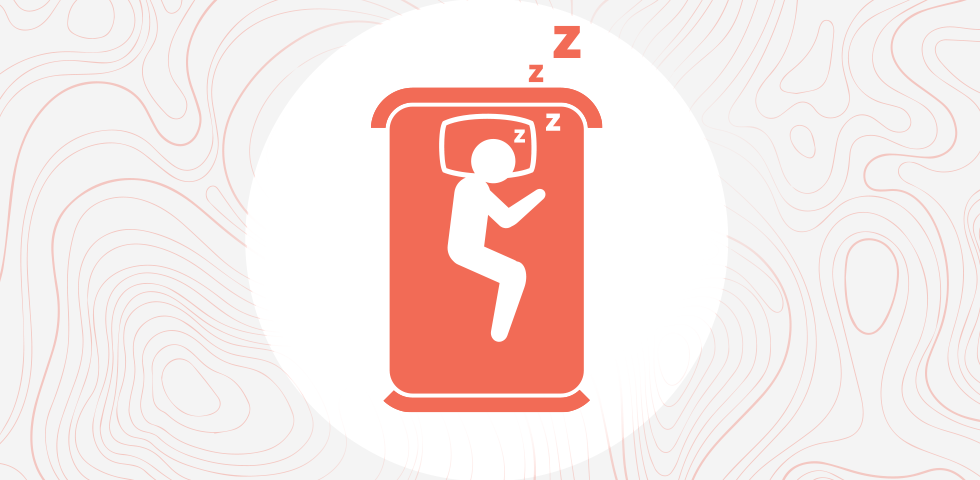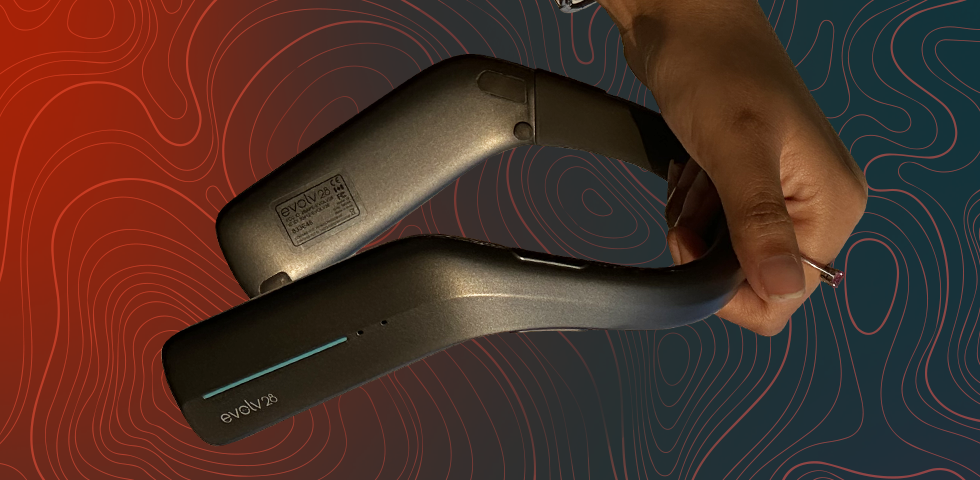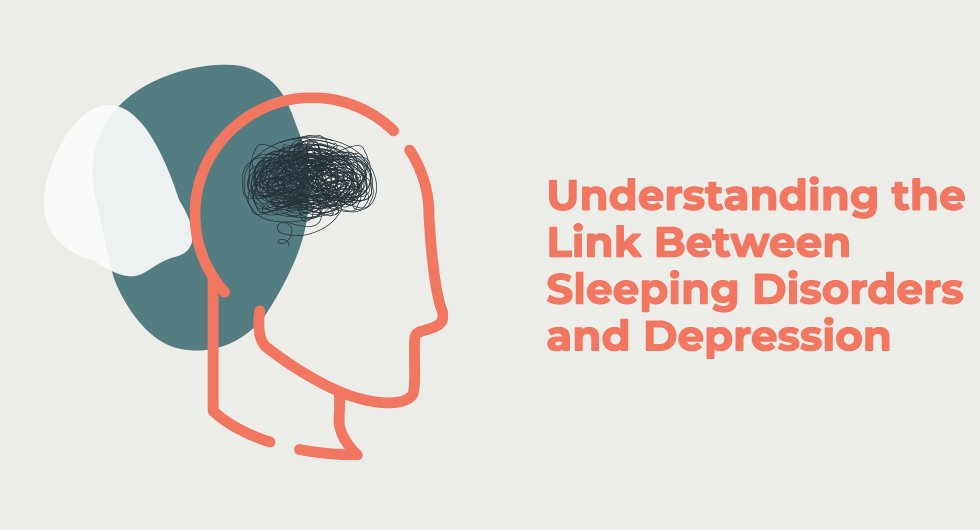Sleep and mental health are closely intertwined, and this relationship is especially evident when looking at sleeping disorders and depression. It’s a bit of a chicken-and-egg situation: poor sleep can lead to depression, and depression can lead to poor sleep.
Let’s delve into the fascinating (and sometimes frustrating) world of sleeping disorders, their causes, symptoms, and how they connect to depression.
What Are Sleeping Disorders?

Sleeping disorders encompass a wide range of conditions that affect the quality, timing, and amount of sleep, leading to daytime distress and impaired functioning.
The most common sleeping disorders include:
- Insomnia: Difficulty falling or staying asleep, often accompanied by waking up too early and not being able to get back to sleep. Insomnia can be acute (short-term) or chronic (lasting a month or more).
- Sleep Apnea: A potentially serious disorder where breathing repeatedly stops and starts during sleep. The two main types are obstructive sleep apnea (caused by throat muscles relaxing) and central sleep apnea (caused by the brain not sending proper signals to the muscles that control breathing).
- Restless Legs Syndrome (RLS): A condition characterised by an uncontrollable urge to move the legs, usually because of an uncomfortable sensation. It typically happens in the evening or nighttime when sitting or lying down.
- Narcolepsy: A chronic sleeping disorder that causes overwhelming daytime drowsiness and sudden attacks of sleep. People with narcolepsy often find it challenging to stay awake for long periods, regardless of the circumstances.
What Is the Cause of Sleeplessness?
Psychological Causes
Mental health plays a significant role in sleep. Anxiety and depression are major contributors to sleeplessness. When you’re anxious, your brain is in a state of heightened alertness, making it difficult to relax and fall asleep. Depressed individuals often experience changes in sleep patterns, such as insomnia or hypersomnia (excessive sleep).
- Anxiety: Anxiety triggers the body’s stress response, leading to a state of heightened arousal. This makes it difficult to fall asleep as the mind races with worries and fears.
- Depression: Depression can disrupt sleep in various ways, such as causing early morning awakenings or making it hard to get out of bed due to excessive sleepiness.
Physical Causes
Physical health issues can also cause sleeplessness. Pain from injuries or chronic conditions like arthritis can keep you awake. Hormonal changes, particularly in women during menopause or pregnancy, can also disrupt sleep.
- Chronic Pain: Conditions like arthritis, fibromyalgia, and other chronic pain conditions can make it challenging to find a comfortable sleeping position, leading to fragmented sleep.
- Hormonal Changes: Menopause, pregnancy, and menstrual cycles can all cause hormonal fluctuations that impact sleep quality.
Lifestyle and Environmental Factors
Lifestyle choices and environmental conditions significantly impact sleep quality. Irregular sleep schedules, high caffeine intake, lack of exercise, and poor sleep environments (e.g., too much light or noise) can all lead to sleeplessness.
- Irregular Sleep Schedule: Shifting your sleep times frequently can disrupt your body’s internal clock, making it harder to fall asleep and wake up at consistent times.
- Caffeine and Alcohol: While caffeine is a stimulant that can keep you awake, alcohol might help you fall asleep initially but can disrupt your sleep later in the night.
- Lack of Physical Activity: Regular physical activity can help you fall asleep faster and enjoy deeper sleep. With it, it is easier to get restful sleep.
- Poor Sleep Environment: A bedroom that is too bright, noisy, or uncomfortable can significantly affect your ability to sleep.
What Are Some Symptoms of Lack of Sleep?
Immediate Symptoms
The immediate symptoms of sleep deprivation are hard to ignore and can include:
- Fatigue: Persistent tiredness and lack of energy can affect your daily activities and performance.
- Mood Changes: Increased irritability, stress, and anxiety are common when you don’t sleep enough. Sleep-deprived individuals may also experience mood swings.
- Cognitive Impairment: Difficulty concentrating, forgetfulness, and poor decision-making are often linked to inadequate sleep. This can affect your work, school, and personal life.
Long-Term Symptoms
Over time, chronic sleep deprivation can lead to more severe health issues, such as:
- Weakened Immune System: Increased susceptibility to infections and slower recovery times are expected in sleep-deprived individuals.
- Weight Gain: Hormonal imbalances caused by lack of sleep can increase appetite and cravings for high-calorie foods, contributing to weight gain.
- High Blood Pressure: Poor sleep can lead to increased stress on the cardiovascular system, raising the risk of high blood pressure and heart disease.
- Diabetes: Sleep deprivation affects how your body processes glucose, increasing the risk of insulin resistance and type 2 diabetes.
How Are Depression and Sleeping Disorders Linked?
The connection between depression and sleeping disorders is a two-way street. On one hand, people with depression often experience sleep disturbances.
They might struggle with insomnia, waking up early and being unable to fall back asleep, or they might suffer from hypersomnia, feeling excessively sleepy during the day.
On the other hand, chronic sleep issues can increase the risk of developing depression. Sleep is essential for processing emotions and maintaining mental health.
Without it, you’re more vulnerable to emotional instability and negative thinking patterns. This bidirectional relationship means treating one condition can often help alleviate the other.
Better Sleep and Mental Health With Evolv28 Device

The Evolv28 device is a groundbreaking solution designed to enhance sleep quality and mental health through its patented Variable Complex Weak Magnetic Field (VCMF) technology. Let’s delve deeper into the features of the Evolv28 device and how each aspect contributes to better sleep:
Magnetoelectric Fields:
The Evolv28 device uses magnetoelectric fields to harmonise the brain wave
- Brainwave Entrainment: These magnetic fields are designed to influence brainwave patterns, guiding the brain into states conducive to sleep.
- Relaxation: By promoting relaxation, these fields help reduce the time it takes to fall asleep and improve overall sleep quality.
User-Friendly Mobile App
Evolv28 has a mobile app that allows users to control the device and customise their experience.
- Program Selection: Users can choose from various programs tailored to different needs, such as sleep better, overcoming sorrow, alleviate stress, or even ‘better concentration.
- Guided Setup: The app provides tutorials and step-by-step guides, making it easy to set up and use the device effectively.
Bluetooth and WiFi Connectivity
The device connects to mobile devices via Bluetooth and can download updates via WiFi.
- Seamless Integration: Bluetooth connectivity ensures that users can control the device from their smartphones without hassle.
- Continuous Improvement: WiFi capability allows the device to receive updates and new programs, keeping the technology current and effective.
Ease of Use:
The device is designed to be simple to use. The device features LED lights that indicate its operational status.
- Simple Controls: The device’s controls are intuitive, ensuring users can start their sleep programs quickly and without confusion.
- Comfortable Design: The neckband is designed to be worn comfortably, allowing users to use the device while lying down or resting.
- Visual Feedback: Users can easily see if the device is on, connected, and running a program. This clear feedback helps in managing the device without interrupting the sleep process.
Portable and Convenient:
Evolv28 is lightweight and portable, making it easy to include in daily routines.
- Ease of Integration: Its portability means that users can use the device at home while travelling or in any setting to improve their sleep.
- Daily Use: The device can be easily integrated into nightly routines, promoting consistent use and better long-term sleep patterns.
Conclusion
Understanding the link between sleeping disorders and depression is crucial for improving overall well-being. By recognising the causes and symptoms of sleep problems and taking proactive steps to address them, we can break the cycle and enhance our sleep and mental health.
Transform your nights and rejuvenate your days with the state-of-the-art Evolv28 device. Experience the benefits of improved sleep quality, reduced stress, and enhanced mental well-being.
Don’t wait! Invest in your health and get your Evolv28 today for restful, restorative sleep every night.
